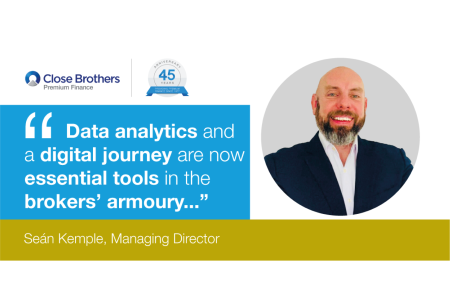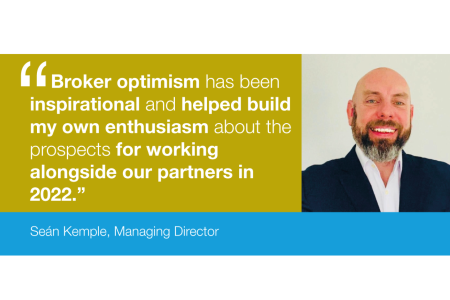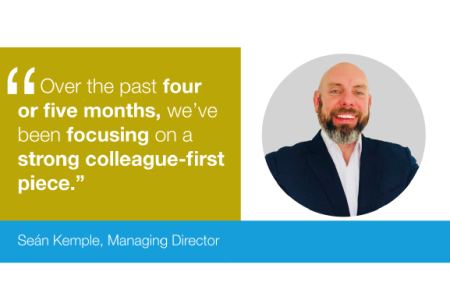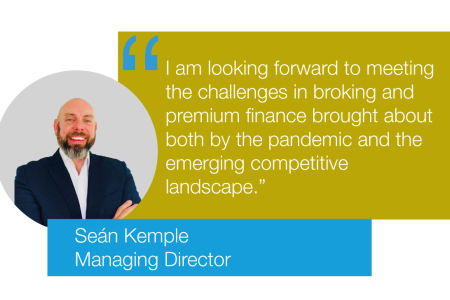CBPF is relaunching its suite of product and sales training. We get the inside track on how team training can help brokers and their business from experienced (and popular) sales trainer Deborah Mak.
Q: You’ve been a CBPF sales trainer for over three years now, what led you here?
A: My background is in car sales, where I was also selling the benefits of finance and insurance. Then I moved on to build a sales academy for the dealer group looking at everything a salesperson would need to know and putting together a five-day course covering everything from prospecting to regulations and the customer experience. I stayed in the motor industry as a sales trainer for 20 years, but once I found the position with Close Brothers I never looked back.
Q: How have you and your training offer had to adapt to everything that’s happened over the past year?
A: I was very fortunate that in January last year I had already started to look at delivering our training via WebEx, simply to increase time efficiencies for some of our broker clients. We were training our teams to work this way by February and were up and running and CPD-accredited for virtual training by May.
Q: What do brokers seek to gain by inviting you in to train their teams?
A: It’s all about brokers understanding how premium finance can help their business and be a big benefit to their customers. Many front-line execs are focused on gaining the business or the client renewing without an understanding of why a premium finance option is crucial to treating customers fairly by helping them with their cash flow.
It’s about reviewing what may be habitual processes, reassessing what brokers do in every meeting or call. I had a broker last week who wasn’t aware of the corporation tax benefits and off-balance sheet lending – he booked his sessions very quickly.
At present our personal lines delegates are looking for assistance on how to deal with the hard market, something that the insurance industry is currently experiencing. This results in premium increases and fewer insurance solutions.
We train our front-line execs on how to establish their client’s requirements quickly on their calls, to add value to the product and how to reframe an objection to the sale - to what it actually is, which is feedback from the customer. This reframing technique can diffuse objections and help come to an amicable agreement on both sides of the call.
Q: What is the range of the training that your team offers?
A: We offer a selection of soft skills in our broker development program that takes the exec on a journey of preparation from prior to the meeting up to asking for the business. This amounts to 7.3 hours of CPD-accredited training that we break down into hourly sessions carried out weekly with actions/homework in between each session. We also have a course on reading and interpreting a set of financial accounts and one on why the insurance industry is experiencing a hard market and what we can do to help customers. These as well as a suite of exciting new CPD modules planned for our brokers in the autumn.
Q: Which team members are taking the training?
A: It’s front-line execs or anyone who interacts with clients. A lot of owners also enjoy the sessions as a kind of refresher – being aware that they may be stuck in old ways. They see us a support function – as an extended team meeting all about their people and the challenges they face.
Q: What are the key things that people learn in the sessions?
A: How premium finance can be a valuable commodity to clients today because of the hard market, Covid-19 and Brexit challenges. Why cash flow today will affect their client’s future tomorrow, and how they can help. Why fear and disagreement may enter the sales experience, and what happens once this has been acknowledged by both account exec and client.
Q: What type of sales techniques deliver growth for brokers?
A: It’s all about confidence in understanding how you are helping your client’s cash flow and sustainability – and asking good quality, relevant questions in the client’s language. We also cover Carl Jung’s theory of colours in language – brokers love that! At the end of the day, the biggest sales limiter may be the story that you tell yourself.
Q: Do you have any data or feedback to show that sales training makes a difference?
A: We can now measure growth from brokers trained against untrained brokers – and our data shows us that 76% of brokers trained by our trainers experienced increases in new cases after completing the modules. And the average broker experienced post-training growth in new cases of more than 38%.
One ex-forces broker made a comment at the beginning of a session about getting rid of all his challenging clients. At the end of the programme, he shook my hand and thanked me, saying that in all his military life he had never taken the time to look at himself – now he had, and he could see that he was the one making things challenging.
Q: What’s the most important thing to remember when it comes to training?
A: In training, we aim for three things: awareness of bad habits (stop!); awareness of good habits (continue!); and awareness of new ways of doing things and more knowledge (start!). We’re a support function and, along with our sales managers, are there to enhance the brokers’ skills and experience. But it’s not all tell – it’s what happens after the sessions that makes the difference.






